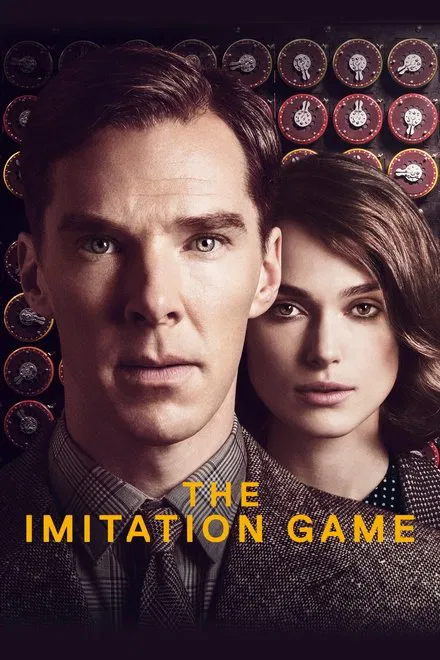
Directed by: Morten Tyldum
Starring: Benedict Cumberbatch, Keira Knightley, Matthew Goode, Rory Kinnear, Charles Dance, Mark Strong
🧩 Introduction: Genius Against the Clock
The Imitation Game (2014) is a thrilling, nuanced portrait of Alan Turing, the mathematical prodigy whose invention of the modern computer helped turn the tide of World War II. Adapted from Andrew Hodges’ biography, the film follows Turing’s time at Bletchley Park, his dogged pursuit of the unbreakable Enigma code, and the painful isolation imposed by both war and secrecy. At its heart, the story is about the cost of genius—and the ways society both rewards and punishes those who are different.
🔐 The Enigma Machine: Unbreakable Code, Unthinkable Stakes
Bletchley Park, the British government’s secret codebreaking center, is a crucible of intellect and pressure. The film dramatizes the high-stakes race to crack Enigma, the Nazis’ “unbreakable” cipher that changes every day. Turing, portrayed by Benedict Cumberbatch, is brilliant but socially awkward, often clashing with his team and superiors. His vision for a mechanical “computing machine” is met with skepticism and even ridicule, yet he persists, driven by logic and a belief in the possible.
The narrative deftly balances technical intrigue with human drama: late-night breakthroughs, coded messages, and the moral calculus of which intercepted attacks to prevent. Turing’s creation—an early computer he dubs “Christopher”—eventually cracks Enigma, shortening the war by years and saving millions of lives. Yet the victory is bittersweet, as secrecy requires the team to keep silent even as history is made.
💔 Secrets, Identity, and Prejudice
Parallel to the wartime drama is Turing’s private struggle. The film explores his homosexuality—illegal in 1940s Britain—and the personal and legal dangers he faces as a gay man. His relationship with Joan Clarke (Keira Knightley) provides both emotional support and further complexity: their engagement is pragmatic, built on mutual respect but shadowed by social realities.
The postwar scenes are haunting: Turing, prosecuted and chemically castrated, endures isolation, shame, and deteriorating health. The injustice is made all the more tragic by his contributions to science and humanity. The film ends with Turing’s legacy: the “Turing Test,” the birth of computers, and a belated public recognition of his genius—set against the cost exacted by intolerance.
🎯 Final Thoughts: Breaking More Than Codes
The Imitation Game is a reminder that history is shaped not just by battles and technology, but by courage and empathy. Turing’s brilliance changed the world, but his vulnerability and persecution are equally instructive. The film challenges viewers to question the boundaries of normalcy, the ethics of secrecy, and the consequences of a society that prizes conformity over compassion. In honoring Turing, we are called to honor all those who live, and love, in the margins.